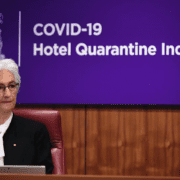The Values Deficit
Reconciling the need for financial value with social values that drive reputation
Creating value is the foundation stone of all business – to make or grow something, to provide a service, to improve daily life.
This is the drive that results in surplus that can be traded and that has resulted in the interdependent global market in which we live.
But there is more to what is ascribed a value. To paraphrase the Bible, “man does not live by bread alone”. We seek community, family, security and, for some, spiritual certainty and fulfilment. To achieve those ends in a civilised society we develop a set of beliefs, behaviours and ethics; a guide to our actions. We give those actions value, typically based on what we perceive the results to be either good or bad.
Whilst there may be some cultural relativity, the core social values that are supposed to guide most of us are fairly common. Honesty, respect, tolerance and fairness are seen as essential social values. Their importance is attested to by the distress and anger caused when any, or a combination of those values are demonstrably absent in the actions of others. That is why we characterise such behaviour as criminal and seek to punish it and stamp it out.
The modern global village is made up of individuals, states and corporations. In the developed world we expect the same social values to drive ethical and fair behaviour by all. We probably hold the non-individual actors (i.e. governments, corporations et al) to a higher standard, particularly given the disproportionate power they wield. Amongst those who state that with great power comes great responsibility are Winston Churchill, Theodore Roosevelt and Spiderman.
That is where companies can find themselves in major trouble. In the drive to create monetary value, shareholder value and personal value for executives, they may forget the imperative to fit within the prevailing social values. That is, there is a Values Deficit TM. When that happens corporate reputation can, and usually is, destroyed.
The 24-hour news cycle means that corporate misbehaviour will quickly gain broad exposure and, sadly, there is no shortage of examples. The result is that not only are organisations held to a higher standard, but the general disposition of most of the community towards them is inherently cynical.
To gain and maintain trust, companies must align their values to community expectation and not only live those values, but also be seen to live them. When that does not happen we regularly hear complaints about a negative and poisonous corporate culture. Complaints that can justify the business equivalent of a lynching, or, at the very least, a pelting with rotten fruit.
Not aligning with expected social values, yet still seeking to profit from the community that shares them, is the Values Deficit TM that can turn any business into a market pariah.
Any organisation that does not do a regular check of its values, the culture those create and assess if its actions and messages convey the desired values, runs a serious risk of drifting into a Values Deficit TM. The very nature of fast-paced competition can hasten that drift and create damage to reputation before it is even realised.
RMKA are highly experienced in working with organisations to assess expressed and lived values and to communicate values alignment with the communities and stakeholders that support any organisation’s licence to operate.












Leave a Reply
Want to join the discussion?Feel free to contribute!